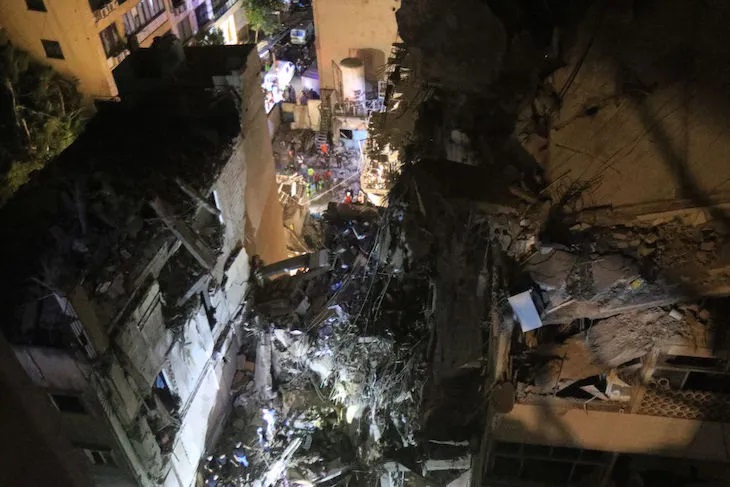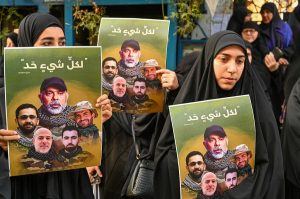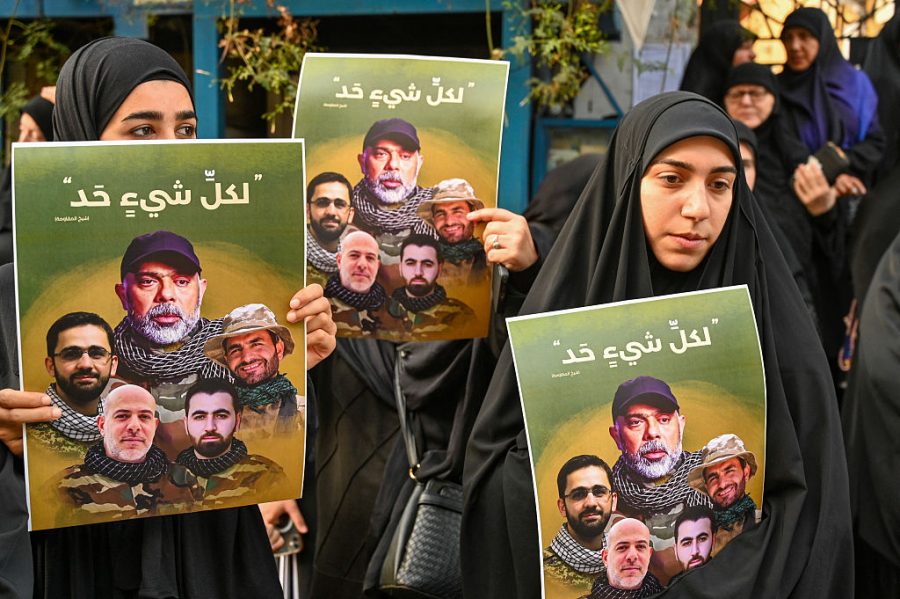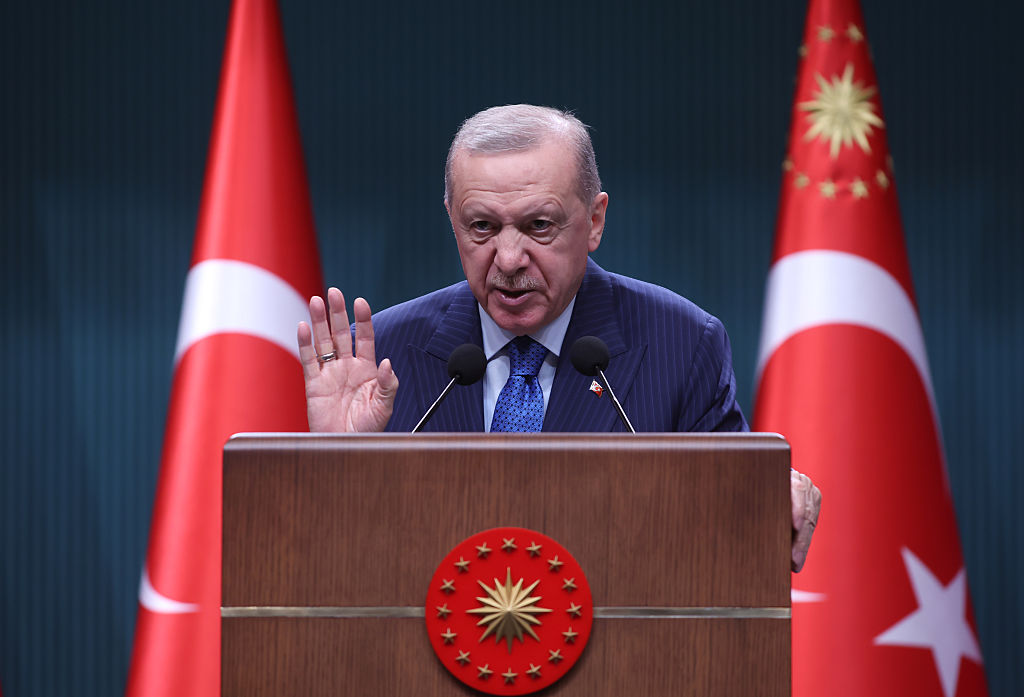Israel has been accused of killing Hamas leader Ismail Haniyeh in a strike on Iran overnight. No one has claimed responsibility for the attack but Hamas said Haniyeh was “killed in a treacherous Zionist raid” and vowed revenge. If indeed Israel did target Haniyeh in his Tehran residence it could mark a major escalation in the conflict. Iran will be humiliated that, even in the heart of its capital, Haniyeh was not safe.
Hamas said Haniyeh was ‘killed in a treacherous Zionist raid’
Israel is yet to respond or issue a statement, but the country did say that it carried out a separate strike on Beirut yesterday in response to a Hezbollah rocket attack in the Golan Heights in which twelve children died. The Israeli airforce bombed a building at the heart of Hezbollah’s neighborhood in Beirut. The target was Fuad Shukr — Hezbollah’s number two and the closest man to leader Hassan Nasrallah. If Israel managed to kill Shukr, who commands Hezbollah’s armed forces and precision missile project, it would be a major achievement for the country, although it will come at a price.
The Israeli military said Shukr was the target of an “intelligence-based elimination.” Israeli defense minister posted on X/Twitter that “Hezbollah crosses a red line” when it launched the attack that resulted in the children’s death. Israel had to retaliate and Hezbollah expected to be hit.
There’s no confirmation yet that Shukr — or Haniyeh — were killed, but Israel is braced for retribution. Troops have been moved closer to the border with Lebanon and all defense systems are on high alert. Nasrallah will have to decide whether to strike back with force — possibly with powerful weapons that haven’t been used before, fired deeper into Israeli territory, perhaps trying to overwhelm Israeli defenses. This, however, could result in many casualties and risk a major conflict. Or he could choose a limited response that will contain the fighting.
Hezbollah (which is also a political party in the Lebanese parliament) has been attacking Israel since October 8 — a day after Hamas’s invasion started the war. Although both sides have been trying to avoid an escalation into a full-scale conflict, Hezbollah’s attacks have become increasingly dangerous. They’ve included thousands of missiles, rockets and drones launched into Israel on a daily basis, causing casualties among soldiers and civilians and widespread damage to towns in northern Israel. Israel has found the drone and anti-tank missile attacks particularly tricky to stop.
Over the past ten months, Israel has chosen a policy of containment and limited response. Israel wanted to avoid a full-scale war on its northern border so it could direct efforts and resources to fighting Hamas in the south. Hezbollah is also a more formidable enemy than Hamas: larger, more experienced and more heavily armed. Fighting it in Lebanon presents an array of difficulties that the Israel Defense Forces have struggled to face successfully in the past, even when Hezbollah was smaller and weaker. The American government has also placed a lot of pressure on Israel to stop it from opening a front against Hezbollah — worried that it may eventually require American military involvement in an unwanted war in the Middle East. Timing is also bad for Israel, as it’s facing International criticism and scrutiny.
Hezbollah too has wanted to avoid a war that could deplete its weapons arsenal and deliver a heavy blow. However, all this doesn’t mean that a full-scale war can necessarily be avoided.
A war is likely to involve Iran
Israelis are fed up with the government’s lack of strategy with regard to Hezbollah. The cycle of violence claims daily casualties (another Israeli civilian was killed by a Hezbollah rocket yesterday). Tens of thousands of civilians have been evacuated from their homes near the border and are living in temporary accommodation. Those living further away from the border face daily runs to bomb shelters and severe risk to life. If the strike on Hezbollah was successful it would be a tactical triumph but it will not improve the safety of Israelis.
Moving forward, Israeli prime minister Benjamin Netanyahu has three options. One is to strike a ceasefire deal with Hamas. Nasrallah claimed that, if a deal is reached, Hezbollah will cease its attacks. This would improve things in the short term, but in the long term Hezbollah still poses a severe threat to Israel’s security, with an ability to inflict large-scale destruction.
Another option is start a full-scale war with the aims of weakening Hezbollah considerably and pushing them away from the border. This would be a difficult and costly war, both for Israel and for Lebanon. A war is also likely to involve Iran, which has already launched a large-scale attack on Israel in April, and Turkey, whose president, Recep Tayyip Erdoğan, said recently will send forces if Israel enters Lebanon. Although this is unlikely, Turkey could provide advanced drones and other weapons to Israel’s enemies.
The third option is continuing to do nothing of consequence, as has been Netanyahu’s policy so far. This means the cycle of violence carries on for the foreseeable future.
This article was originally published on The Spectator’s UK website.


























Leave a Reply